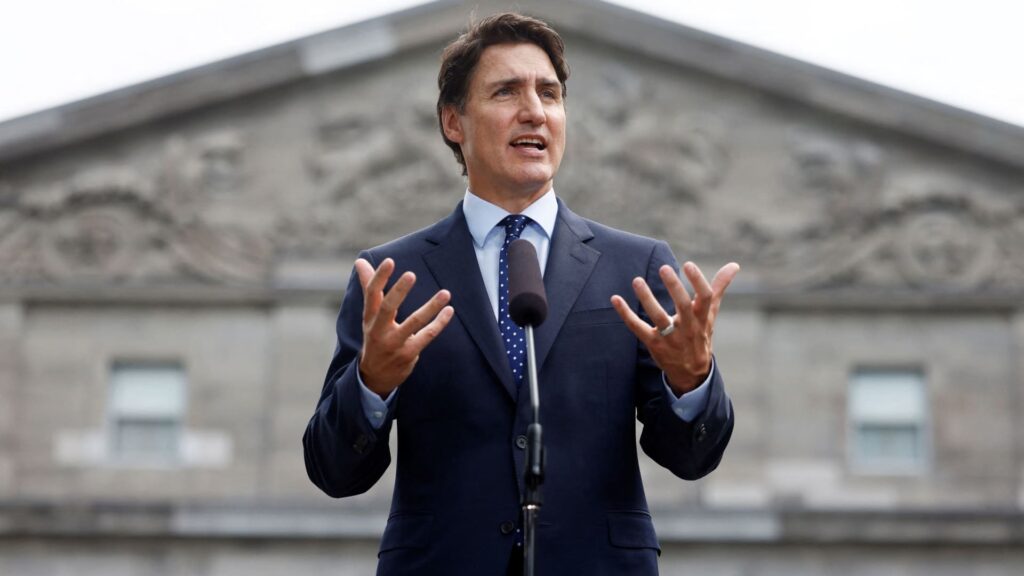Canadian Prime Minister Justin Trudeau speaks during a press conference following a cabinet reshuffle at Rideau Hall on July 26, 2023 in Ottawa, Ontario, Canada.
Blair Gable | Reuters
Canada announced Monday it would follow the United States and European Union in imposing 100% import tariffs on Chinese-made electric vehicles over concerns about unfair subsidies.
The Canadian government announced Monday that it already imposes a 6.1% tariff on electric vehicles made in China and imported into Canada. The 100% tariff will take effect on October 1.
The country also plans to impose a 25% tariff on Chinese-made steel and aluminum imports starting Oct. 15. China is Canada’s third-largest steel importer, according to the Canadian Steel Producers Association.
The Canadian government’s finance ministry said Canada’s electric vehicle, steel and aluminum industries face “unfair competition” and trade practices from China. The United States and EU have made similar claims, citing Chinese “excess capacity,” but China has called these claims “unfounded.”
Canada said the new measures aim to “level the playing field for Canadian workers” and allow Canadian EV, steel and aluminum producers to compete at home and abroad.
These measures will be reviewed one year after their effective date and may be extended or supplemented by additional measures.
This comes after the Biden administration announced in May that it would impose 100% tariffs on Chinese-made EVs. The EU also imposed high tariffs on Chinese-made EVs in July, but last week significantly rolled back some of its planned tariffs on China-made Tesla EVs and other Chinese EV makers.
Vincent Zhang, China strategist at Aletheia Capital, told CNBC’s “Street Signs Asia” on Tuesday that the Canadian tariffs could hurt China’s EV growth momentum, but “it won’t completely kill it.”
A spokesman for the Chinese embassy in Canada said in a statement on Monday that China expressed “strong dissatisfaction and resolute opposition” to the measure, adding that it “violates WTO rules” and “harms trade and economic cooperation between China and Canada.” The spokesman added that China will take necessary measures to protect its companies.
“We want to emphasize that the rapid development of China’s EV industry is the result of continuous technological innovation, established industrial and supply chains, and perfect market competition,” the spokesman said, adding that China’s EV industry does not rely on government subsidies.
Chinese electric vehicle maker BYD opened its first bus assembly plant in Canada in June 2019 and began operating electric buses in Toronto, but Chinese state media Global Times reported in June that Chinese brands still do not have a major presence in Canada.
In 2023, when Tesla began shipping electric cars made at its Shanghai factory to Canada, Chinese auto imports into Vancouver, Canada’s largest port, surged 460% from the previous year to 44,356 units, according to data cited by Reuters. Tesla did not immediately respond to CNBC’s request for comment.
Canada will also begin reviewing other industries important to the country, including batteries, semiconductors and solar power products.
—CNBC’s Sonia Heng contributed to this report.



